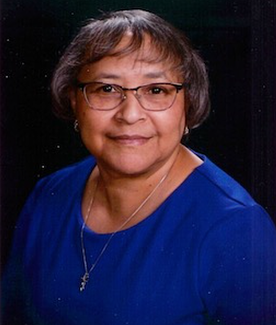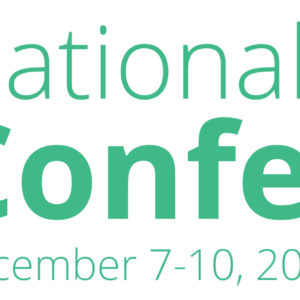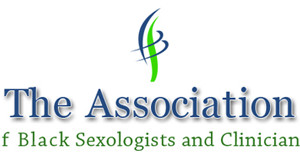This is the first in a series of posts meant to prepare you for this year’s National Sex Ed Conference. This week, we spotlight Dianne Browne, Ph.D., CFLE, Project Director of Camden Healthy Start at Southern New Jersey Perinatal Cooperative, who will be speaking about reproductive justice on Thursday, December 7, 11:15 a.m. – 12:15 p.m.
1. Give me a bit of background on yourself first. Can you give me a quick rundown of what keeps you busiest these days?
 I direct a program called Healthy Start in Camden, NJ. The goal of the program is to reduce infant mortality and address racial and ethnic disparities in perinatal health. I am also an adjunct professor at Widener University in the Center for Human Sexuality Studies in Chester, PA. Over my seven years on the faculty, I’ve taught several different courses but, more recently, my concentration has been methods of human sexuality education and topics in reproductive justice.
I direct a program called Healthy Start in Camden, NJ. The goal of the program is to reduce infant mortality and address racial and ethnic disparities in perinatal health. I am also an adjunct professor at Widener University in the Center for Human Sexuality Studies in Chester, PA. Over my seven years on the faculty, I’ve taught several different courses but, more recently, my concentration has been methods of human sexuality education and topics in reproductive justice.
2. What are your main areas of interest within the field of sexuality? What would you consider your special niche?
My interests include reproductive justice, sexuality education, and sexual health and reproduction among young Black families. I have an interest in the prevention of unwanted pregnancies and the provision of transparent sexuality education where people can make informed choices about their sexual health.
3. What has most informed your trajectory within this field?
For more than 10 years, I worked with the School Based Youth Services Programs (SBYSP) in NJ. One of the program components was working with pregnant and parenting teens. I was moved by the stories of the youth and the challenges they encountered because of unplanned pregnancies.
My doctoral dissertation at Widener was also a source of influence in my trajectory in the field. I learned about sexual attitudes and beliefs of unmarried Black fathers and how those attitudes and beliefs impacted decisions about the relationships men had with the mothers of their children.
Even now, my current position offers a different vantage point along the same trajectory. Working with low-income women to facilitate them having healthy pregnancies and babies, and being aware of the many challenges they face, such as healthcare, immigration, and housing, has only fueled my desire to educate others and work toward reproductive justice.
4. What obstacles have you faced over the years, and how did you overcome them?
One of the biggest challenges I faced was finding my place in the field of human sexuality. I had worked in state government for 25 years. From corrections, to health, to education and then social services, I was always engaged in public health, but not human sexuality directly. I trained in HIV prevention and counseling and testing. I facilitated an HIV peer educator program for inmates. I was the regional coordinator for SBYSP and adolescent pregnancy prevention programs. Yet I still wasn’t sure how to be a “real” sexuality educator.
I saw what happened to women and girls, men and boys, and low-income Black families when faced with unplanned pregnancies. I didn’t always understand how people found themselves in challenging situations and then there was a baby. I knew about prevention, the use of contraceptives, and of course abortion, but there was something more daunting when I heard about the lives of women of color as it related to reproduction. This was my passion. I wanted to make a difference. I wanted to help provide information so families could make the best decisions for themselves. So I went back to school to study and be credentialed as a sexuality educator.
5. What role do you believe educators have to play in seeking out reproductive justice?
Educators can best serve as advocates, and as proclaimers that reproductive justice is a human rights issue. However, educators first must know history, and what has happened to women of color in the past. As the saying goes, knowledge is power, and power can be a motivating factor. Awareness of reproductive justice can be motivation to prevent injustices from being repeated. From forced sterilization, pregnancy in shackles, partial truths about health services, cells taken without consent… the violations to women’s reproductive rights go on. A quote from the Reverend Dr. Martin Luther King, Jr.: “Injustice anywhere is a threat to justice everywhere…” Enough said.
6. When did you realize there was a need for a presentation on this topic?
Human sexuality education (HSED) is more than what makes us feel good. I have been attending the conference for years and the atmosphere is always feel-good, until last year when Black facilitators spoke out.
HSED is about the field and all its dimensions. It is learning about the things that are often overlooked because they are about marginalized poor or underserved people. HSED is about the provocative nature of the field and the sexual things people want to pretend are not happening. HSED is about: being heterosexual…or not; identifying as female, Transgender…or not; having or wanting to have babies…or not; and having the right to make one’s own reproductive decisions. It is not a polite topic, especially when we acknowledge that reproductive justice is more than just abortion and way more than a “woman’s rights” issue. Reproductive injustice is ugly. Reproductive justice calls learners to recognize women of color and the injustices they’ve experienced for a very long time.
7. What is the main takeaway you hope conference attendees will get from your presentation?
I hope they leave with an awareness that reproductive injustices happen in this country and, now that they know, they consider how to teach, advocate, or bring that awareness to others.



